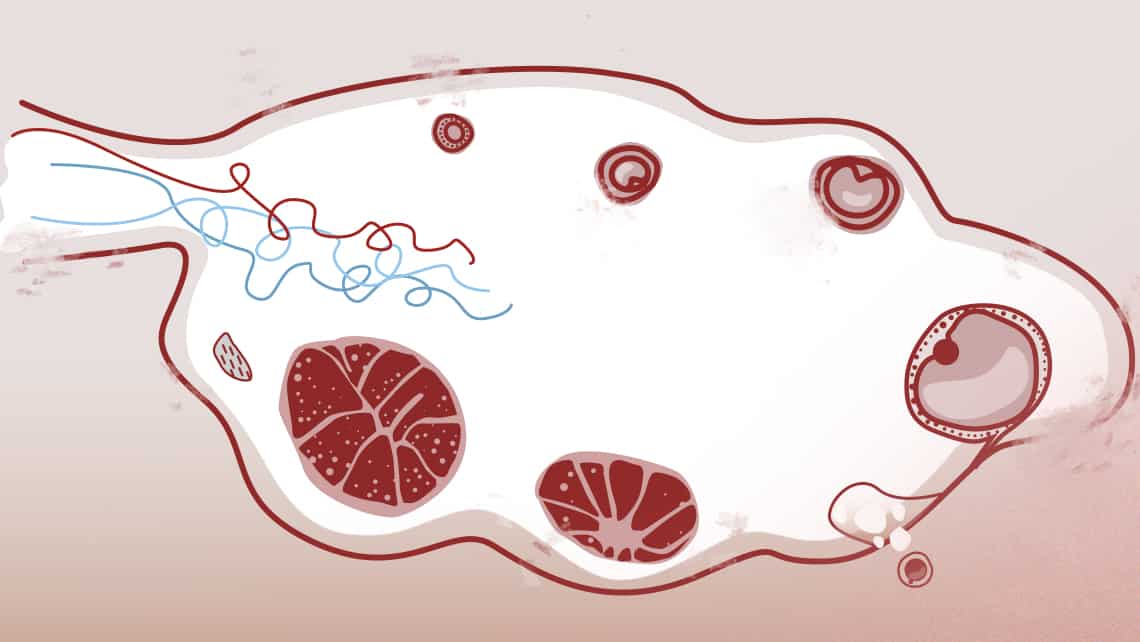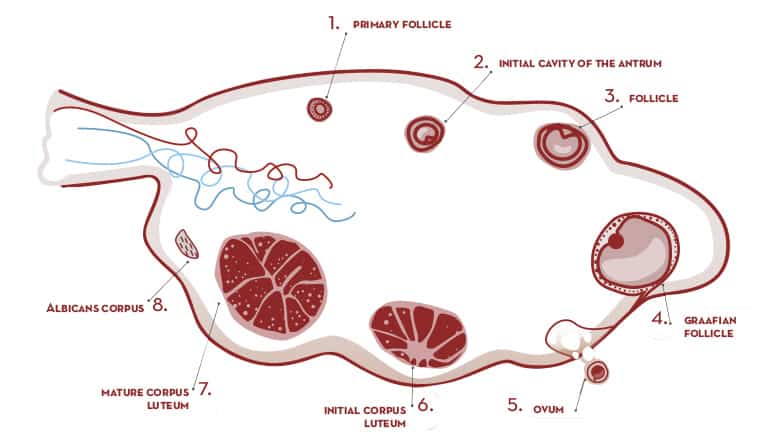
What is the corpus luteum?
After ovulation, follicles transform into the corpus luteum or ‘yellow body’. Corpus luteum development depends on the luteinising hormone (LH) surge before ovulation and on the number of receptors for this gonadotropin in the granulosa cells and in the theca cells. Both types of cells go through significant changes in structure and composition and this turns the walls of the corpus luteum a yellow colour.

Índice
Corpus luteum phases
The stages of the life cycle of the corpus luteum are:
- proliferation
- vascularisation
- maturity
- regression.
What happens to the corpus luteum when there’s no fecundation?
If fertilisation does not take place, the corpus luteum degenerates and is no longer functional. This is due to the low levels of LH present over the days leading up to the next menstrual cycle.
What happens to the corpus luteum when there is a pregnancy?
However, if the oocyte has been fertilised and it has implanted and the embryo has begun to develop, the corpus luteum has an extended life span. This is because human chorionic gonadotropin preserves the corpus luteum for a period of time. It mainly secretes progesterone that acts on the uterine mucosa where the fertilised ovum or embryo will implant. As such, its progesterone synthesis is essential in order for early pregnancies to begin and develop.
Corpus luteum function
Therefore, the corpus luteum has a dual role. On the one hand, it has a limited duration during non-fertile cycles and this serves to sustain menstrual activity. On the other, when it persists for a longer period of time during pregnancy it leads to the production of endocrine substances that help pregnancies to both begin and continue.
THE FOLLOWING MAY ALSO BE OF INTEREST TO YOU
- In Vitro Fertilization (IVF)
- Endometrial receptivity: Optimum characteristics for the endometrium when a woman wishes to get pregnant
- What are follicles? Number, growth and other characteristics
- Embryo transfer
- Implantation failure and repeated miscarriage. Treatment options
- What can we see in ultrasound scans: follicles or oocytes?
